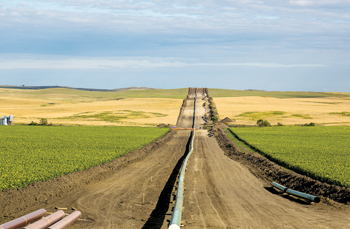
Venezuelan state company PDVSA is letting some joint venture partners take over the day-to-day operation of oilfields as its own capacity dwindles due to sanctions and a lack of cash and staff, according to a former oil minister, an opposition lawmaker and industry sources.
Crude production by PDVSA and its joint ventures has fallen to about a third of its peak 20 years ago. The steepest fall has occurred since military officials with no oil industry experience took over PDVSA’s management in late 2017 and Washington imposed sanctions on the state-run company in early 2019 in a bid to oust socialist President Nicolas Maduro.
Maduro’s government and the opposition last year discussed allowing partners in PDVSA-led joint ventures to operate the oilfields, which would reverse a legal requirement that PDVSA control the operations.
Rafael Ramirez, a former oil minister and PDVSA president, said the company had already effectively handed control to joint venture partners even though an agreement had not yet been formally reached.
Ramirez, an adviser to some international energy firms that have recently worked in Venezuela, said PDVSA had been reduced to little more than an administrator of contracts with oil companies.
“PDVSA is no longer producing. It’s signing contracts for others to produce in a de facto privatization,” Ramirez told Reuters during an interview at a location he requested not be disclosed.
Ramirez named Russia’s Rosneft and China’s CNPC among the companies helping to keep PDVSA alive by operating joint oilfields or injecting cash to the state company by buying larger stakes in some ventures.
CNPC and Rosneft did not respond to requests for comment. PDVSA and the Information Ministry, which handles media requests for Maduro’s government, did not respond to Reuters questions.
Luis Stefanelli, an opposition lawmaker and member of Congress’ energy commission, said the government and PDVSA have been using formulas originally proposed by the opposition to allow private partners to take more responsibilities in joint ventures, but in an illegal way.
Jose Ignacio Hernandez, an overseas legal representative appointed by Congress’ head, Juan Guaido, backed up the comment.
“Under the Hydrocarbon Law, every agreement for PDVSA to cede exploration and production rights is illegal and unconstitutional. Maduro’s regime is insisting in the oil industry’s de-facto privatization, which is aggravating its collapse,” he said over Twitter.
Company executives, business partners and union leaders consulted by Reuters, who asked to remain anonymous for fear of retaliation, also said minority partners in some joint ventures progressively took more roles in 2019, including financing, trading, procurement and shipping.
A CNPC executive, who recently visited the company’s facilities in Venezuela, confirmed the efforts to transfer operation of some oilfields to minority partners but said it was a “futile proposal.”
“Even if Caracas passes the new law to allow minority investors to become operators, companies can hardly do their job in reality,” he said, added that lack of staff and widespread corruption were hobbling the industry.
Venezuela produced 1.01 million barrels per day (bpd) of crude from January through November 2019, according to data reported to OPEC. Industry sources estimated it was at least 20% less.
Oil exports, Venezuela’s main source of export revenue, fell 32 per cent to an annual average of 956,000 barrels per day through November, according to Refinitiv Eikon.










































































